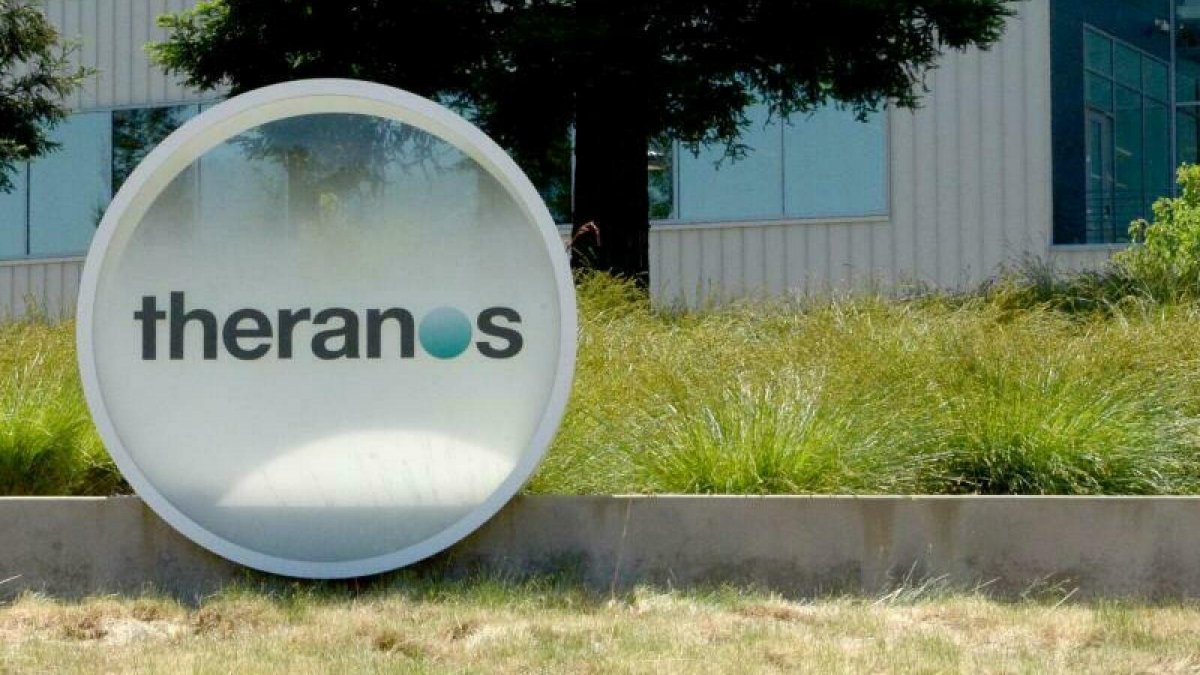The media once celebrated 39-year-old Elizabeth Holmes as a female Steve Jobs. The blonde woman smiled from glossy magazines and appeared on television alongside ex-President Bill Clinton. With the company she founded, Theranos, she set out to revolutionize medical blood tests. Now the start-up founder has to start her prison sentence of more than eleven years on April 27th. US District Judge Edward Davila had previously denied her request for parole. Holmes was convicted in November 2022 of fraud related to Theranos-promised blood tests.
Holmes wanted to get 70, maybe even 120 or 240, it was never quite clear how precise, different health information from a tiny drop of blood from the fingertip: the values of the so-called complete blood count such as the number of white blood cells, the iron value, the content of the red blood pigment, Inflammation levels and blood fats, but also traces of bacteria, viruses and cancer. A fabulous machine called the Edison was supposed to do it all.
Investors thought the idea was great and invested millions. In 2014, they valued the then eleven-year-old company with its three locations at nine billion US dollars – a meteoric rise for a start-up. The drugstore chain Walgreens, together with Theranos, opened 40 so-called wellness centers where customers could give their blood for tests, and invested 140 million dollars in the company itself.
Mystery of the Edison machine for blood analysis
But then the case got rolling, triggered by associate Tyler Shultz, grandson of former US Secretary of State and Theranos board member George P. Shultz. In October 2015, the Wall Street Journal reported on his allegations, which were still anonymous at the time, and lawyers wanted to prevent the article until the end. Shultz claimed that Theranos lab staff didn’t analyze blood with the Edison machine, but with ordinary testing methods. In fact, the wondrous device had never appeared in a trade journal and was a mystery to experts. Any requests for more detailed information were denied with reference to company secrets. “Of course, that’s highly dishonest. Patients often don’t know which methods are used, but insiders know what methods are used by most companies,” says Harald Renz from the Institute for Clinical Chemistry and Molecular Diagnostics at the University of Marburg.
Even before the disclosure, experts such as US medical professor Norman Paradis expressed doubts in the journal “Scientific American” that it was even possible to obtain so much health information from fingertip blood. Because only small molecules such as sugar penetrate the blood in sufficient numbers. Large protein building blocks and viruses or bacteria, on the other hand, can often only be detected in blood from thick veins.
Nevertheless, thousands of users entrusted their blood to Theranos. But that may not have been in their best interest. Because the false claims about Edison’s capabilities weren’t the only problem: In May 2016, Theranos informed the US health authority FDA that it had given false test results to tens of thousands of patients and doctors in 2014 and 2015. It cannot be ruled out that these were treated incorrectly.
put patients in “imminent danger”.
In June 2016, Walgreens ended the collaboration. In July 2016, the regulator, the Centers for Medicare & Medicaid Services, suspended Theranos’ California blood-testing lab license for two years because the company continually puts patients in “imminent danger.” In August 2016, it then closed its other two laboratories and the wellness center on its own initiative. 340 employees were laid off – a good forty percent of the workforce. The battle for compensation ensued.
In October 2016, one of the investors sued the company. Theranos pretended that its technology was about to be launched on the market, which is why it only contributed $96 million. In November 2016, former partner Walgreens also went to court, where it is seeking back its $140 million investment.
Demand for blood tests for early detection is unbroken
However, the scandal did not appear to have harmed the thriving medical technology industry as a whole. Because the great hope that blood tests can significantly improve the early detection of diseases remains. “The market and demand are huge and growing,” says Renz. “Customers want to know how their health is and what they can do about it.”
Research is progressing. For example, a new rapid test for Zika viruses has been available since 2016, tested by researchers from the University Hospital Freiburg and the Bernhard Nocht Institute for Tropical Medicine. In the future, blood tests should even detect cancer so early that, ideally, a cure is still possible. In January 2016, Illumina, the world market leader in genome decoding, together with other investors, put 100 million dollars into the Grail joint venture. Gene fragments that enter the bloodstream from tumors should provide the clue. Another variant of the method is already on the market: the Konstanz company LifeCodexx has been offering its PrenaTest since 2012. The laboratory reads from the blood of pregnant women whether the child in the womb will have Down syndrome. Tens of thousands have already taken the test.
At that time, Elizabeth Holmes tried to save what could no longer be saved. She had marketed at least one herpes test based on fingertip blood. After all, the FDA approved the test, but doubts remained and – its usefulness is likely to be small. In Germany, for example, around 90 percent of the population is infected with herpes simplex viruses, but only very few develop the associated symptoms such as red pustules around the mouth. A positive test would therefore only unsettle most people.

(bsc)
